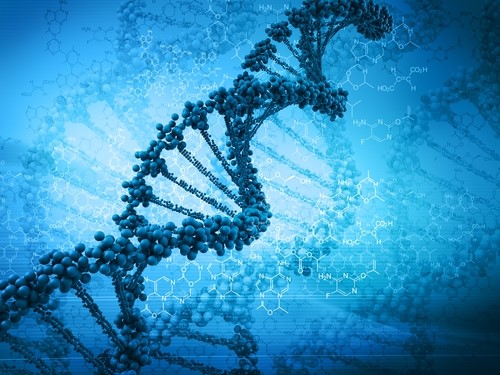Why paternal mitochondria aren’t inherited by offspring
Mitochondria are organelles within eukaryotic cells most commonly known for their role in cellular respiration and the generation of ATP. Mitochondria are unique from other organelles in that they contain their own circular DNA and reproduce independently from the rest of the cell. Interestingly, only maternal mitochondria are passed on to offspring. In order to understand how paternal mitochondria are eliminated during offspring development, researchers at the University of Colorado Boulder studied paternal mitochondria in Caenorhabditis elegans (C. elegans) spermatozoa and embryos. Their results were reported in the June 2016 edition of Science.
 Dr. Ding Xue and collaborators first sought to determine at what state of embryo development paternal mitochondrial DNA (mtDNA) in C. elegans embryos was eliminated. Utilizing an RNAi screen against genes for mitochondrial proteins, it was found that mtDNA was present in early embryos but absent in late embryos, which also coincided with the loss of paternal mitochondria. The researchers then examined the role of CPS-6, a mitochondrial endonuclease involved in apoptosis and chromosome fragmentation, by silencing the corresponding gene, cps-6, using RNAi. As a result, paternal mtDNA persisted through embryo development, indicating a role for cps-6 in eliminating paternal mtDNA during embryogenesis. Furthermore, it was determined that only paternal CPS-6 was involved in paternal mitochondrial elimination (PME). Females lacking cps-6 mated to normal males produced embryos with normal PME.
Dr. Ding Xue and collaborators first sought to determine at what state of embryo development paternal mitochondrial DNA (mtDNA) in C. elegans embryos was eliminated. Utilizing an RNAi screen against genes for mitochondrial proteins, it was found that mtDNA was present in early embryos but absent in late embryos, which also coincided with the loss of paternal mitochondria. The researchers then examined the role of CPS-6, a mitochondrial endonuclease involved in apoptosis and chromosome fragmentation, by silencing the corresponding gene, cps-6, using RNAi. As a result, paternal mtDNA persisted through embryo development, indicating a role for cps-6 in eliminating paternal mtDNA during embryogenesis. Furthermore, it was determined that only paternal CPS-6 was involved in paternal mitochondrial elimination (PME). Females lacking cps-6 mated to normal males produced embryos with normal PME.
Knowing that cps-6 was involved in the removal of paternal mtDNA, the researchers then sought to understand how the loss of cps-6 would affect PME. The loss of cps-6 resulted in embryos that failed to eliminate paternal mitochondria, indicating that cps-6 is needed in the degradation and envelopment by autophagosomes of paternal mitochondria after fertilization. CPS-6 relocates within the paternal mitochondria to destroy mtDNA. Finally, Dr. Xue and his colleagues asked what the repercussions would be if PME did not occur. The results indicated a significant loss of embryo and organism fitness. Loss of paternal cps-6 led to increased lethality in embryos and impaired cell division. Taken together, this work demonstrates that CPS-6 is critical in facilitating PME and paternal mitochondria is detrimental to embryo development, perhaps providing the need for maternally inherited mitochondria.
Related products:
- Meloidogyne spp. Antibodies from the University of Georgia
- DNA-RNA Hybrid [S9.6] Antibody from the National Institute of Allergy and Infectious Diseases/NIH
- Bcl-xL Mitochondria Plasmid from the University of Louisville



